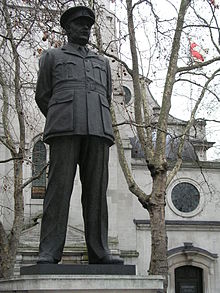As the resident Northern Prod (I think) on this site, I am sorry to hear of Martin McGuinnesss death. While I abhor the violence on both sides (and it needs to be remembered that the barbarity of the Shankill Butchers made the IRA look like a Sunday school picnic), one can only comprehend it in the light of history, of an island that only wanted to be left alone, and whose only invasion of anyone was distinctly beneficial:
https://en.wikipedia.org/wiki/How_the_Irish_Saved_Civilization
Cahills account is exaggerated, but he does have a point. The stunning Stiftskirche in St. Gallen
https://en.wikipedia.org/wiki/Abbey_of_Saint_Gall
was founded by Irish monks and the books of the extraordinary Stiftsbibliothek
https://en.wikipedia.org/wiki/Abbey_library_of_Saint_Gall
go back to the manuscripts of those early monks.
The Plantation of Ulster, the most Gaelic of the Irish provinces, by James I was the start of the troubles in the North that continue to this day. Most of all, the combination of English callousness during the potato famines of the 1840s (the only English who come out of it with any credit are the Quakers, who mounted the worlds first international relief effort) and the Partition of Ireland in 1921, with the establishment in the North of a Protestant Parliament for a Protestant people set the scene for what was to come. That Protestant parliament (No surrender! Not an inch!) set out to discriminate against Catholics in all walks of life, to ensure that the Protestants would remain top dog. It did it in jobs, in housing, in gerrymandering of voting areas (in Mr. McGuinnesss Derry, the boundaries guaranteed that a predominantly Catholic city would always have a Protestant-dominated city council).
Attempts at peaceful protest (inspired by Martin Luther King) were met with Protestant violence, which led to the return of the then moribund IRA and the Troubles.
McGuinness and Adams were ardent Republicans (Adams in particular is Republican royalty his father was interned during the Second World War when the Germans were trying to encourage insurrection in the North). However, they both realised that the old Republican romantic attachment to the gun and the bomb wasnt going to work the bullet and the ballot as Adams said. Both had the credence within the movement to push most of a notoriously fractious movement in a different direction. The British, to their credit, recognised this, opened negotiations and the result (with the help of the Irish government and, finally, the recognition of the Prods) was the Good Friday Agreement, and peace. Northern Ireland is still far from perfect, but it has come a long way.
I can sympathise with people who lost friends and acquaintances in IRA atrocities I have too, and my mother narrowly avoided death in a bomb blast in central Belfast. The history doesnt justify these atrocities in any way, but they are ultimately the products of much misguided thinking and acting by politicians and rulers who suffered none of the consequences of their stupidity its the ordinary folk, on both sides of the divide, who, as usual, get to do the suffering and dying. As the Queen memorably said in her speech at her Dublin reception a few years ago, in retrospect, there are things that the British would have done differently, or not at all.
So, where do we go from here? Id like to see reunification, but many of my countrymen are very much against that. And Ireland desperately doesnt want three-quarters of a million unwilling Unionists. I think that Adams and McGuinness recognised this and were happy to kick that particular can down the road. Brexit has thrown a massive spanner in the works, for both parts of Ireland. There are big problems to be solved, but the joy is that nobody, apart from a few fanatics on both sides, wants to go back to war over it. And part of the credit for that belongs to Martin McGuinness. RIP.


